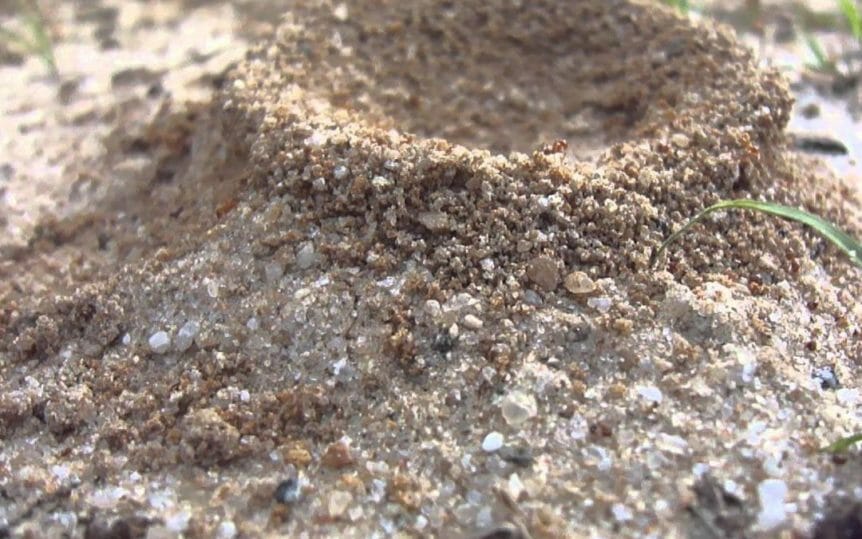
Say Goodbye To Rain And Hello To Fire Ants: Get Protection Now!
Rain, rain, go away! One thing every Houstonian has in common right now is that we are sick and tired of all this rain! For the past few weeks the greater Houston area has seen nothing but dark skies and torrential downpours, but we are not the only ones waiting for the sunny weather. Fire ants are just as anxious for the sun to shine, and when it finally does, expect them to come out with a vengeance.
“This season is going to be a bad one for fire ants for a couple of reasons,” said John Moore Services Pest Control Manager Brian Menn. “First of all we didn’t have a severe winter. A lot of times we get a couple of hard freezes that knock down the fire ant population but that didn’t happen this year. And secondly we have had a ton of rain. Whenever you have so much rain the ground gets saturated so the fire ants can’t colonize deep in the ground like they usually do. As soon as the rain stops and the sun comes out, expect fire ants to pop up everywhere.”
How to tell if you have fire ants or just regular ants?
Fire ants are the only type of ant that make large dirt mounds, so anytime you have a large ant mound in your yard it’s filled with fire ants. Fire ant colonies are huge, and are made up of intricate tunnels underground. Because the ants are always tunneling to increase their colony, they have to remove the dirt from underground to produce their tunnels. The mounds you see in your yard are actually excavated tunnel. Fire ants are the only type of ant to do this, so if you see mounds in your yard you definitely have a fire ant problem.
“The type of fire ant we have in Houston is called the Red Eastern Imported fire ant, and they are pretty aggressive. They won’t chase you but if you get in their territory they will start to attack,” said Menn. “And if you are getting bit by an ant, 99% of the time it is a fire ant. Most all other types of ants are just nuisance ants and will get into your kitchen and food, but fire ants will bite. Fire ants are also polymorphic, meaning they come in all different sizes. I have a lot of customers who think that because an ant is on the small side that it isn’t a fire ant, but that is incorrect.”
Fire ants live to protect their colony and protect their queen. That’s why if you accidentally step on a mound they will immediately attack. And the bad thing is you won’t get attacked by just one because they work together as a team. Before you know if you can have up to 50 ants crawling up your leg and biting you all over.
How to get rid of Fire Ant Mounds
As we said, fire ant colonies can be big. They come in all sizes, but it’s not uncommon to have one colony make 3 or 4 mounds in your yard. And because they are so large it takes a professional to properly remove the entire colony from a property.
“People have a lot of bad habits when it comes to removing fire ants from their yard, and I have heard them all,” said Menn. “I had a customer tell me he put gasoline on a mound and lit it on fire. But these home remedies and store bought treatments never work completely. The majority of these products only affect the mound, but the colony is a lot larger than the mound we see in a yard. You might cause the mound to go away but within a few days a new mound will pop up a few feet away from the old one.”
The key to effectively remove fire ants is to get on a baiting program, which is designed to get the fire ants to carry the bait to the inside of their colony. By attacking the colony from the inside out you are on the right step to permanent removal.
“We use the baiting program and it works really well if you stick with the program,” said Menn. “The baits need to be applied every 3 months. But if it is a severe case then there are other options. We have a product that bonds with the soil particles and keeps ants from nesting in a yard. It is a bit more expensive but it lasts an entire year. For the typical household, I find that the baiting program works just fine.”
Now is the time to start with fire ant treatment. You might not see the mounds popping up just yet, but swarms are out and have been spotted all over Houston. Just like termites, winged reproductive fire ants called “swarmers” come out this time of year looking for a place to start a new colony. Many people notice them on their back patios and they especially in pools. If you have swarmers around your home you can guarantee to have a fire ant problem as soon as the rain stops.
But if you get your home on a pest control treatment plan now you don’t have to worry about it. Our expert pest control technicians will provide a free evaluation and consultation of your yard and estimate a treatment plan based on your needs. We have many different pest control plans available, and our premier plan guarantees fire ant prevention all year! Give us a call now and set up an appointment!
